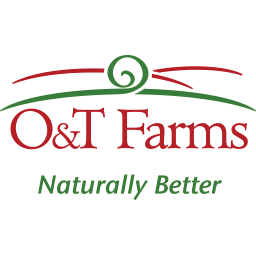A new poll showed more than 70 percent of likely voters supported a national guest worker program for farm laborers, if such a program included various provisions. Western Growers, an association representing farmers in Arizona and California, whose members produce more than half of the nation’s fresh fruits and vegetables, commissioned the new poll. Progressive Dairyman Editor Walt Cooley discussed the survey results with Ken Barbic (top far right), a Washington, D.C.-based lobbyist for Western Growers, and Brian Nienaber (top right), vice president of the Terrance Group, the national polling firm that conducted the poll.
Q. How did you conduct this poll?
A. NIENABER: We used a methodology called a random-digit dial to call into many regions of the country. Once we got somebody on the phone, we’d ask him or her: “Are you a registered voter? Do you plan on voting in the November 2012 election?”
If they told us they’re not very likely to vote, or they’re not registered to vote, then we’d dismiss them from the survey. However, if they met both those criteria, then we’d classify them as a likely voter and proceed with them through the interview.
Q. Who did you survey?
A. NIENABER: This was a national, all political parties survey. When you look at how people identified by party identification, 43 percent of those polled were Democrats, 40 percent Republicans and 17 percent Independents. We had 1,000 interviews with a margin of error for responses of 3.1 percent plus or minus in either direction.
Q. What questions did you ask?
A. NIENABER: Western Growers wanted to look at people’s reactions to potential ag worker program provisions, people’s current attitudes on immigration and immigration reform messaging. We asked how much they think immigration is a cause of unemployment, how much they know already about ag worker programs or E-Verify, for example. We got a pretty good idea of where people would go if they were exposed to a long debate about this issue.
Q. What is the main takeaway from this poll?
A. BARBIC: The No. 1 takeaway is this: When a sensible ag worker program is laid out to voters, they come back, across voting groups, at 70 percent approval of that program. When those same people hear a series of negative and positive messages about an ag worker program, the kind they would expect to hear in a mainstream media campaign to address both the pros and cons, the approval goes up from 70 to 72 percent. A national ag worker program has a lot of support.
Also, when you look at the responses to the question, “Would you be more likely to vote for a member of Congress if they supported such a proposal?,” 64 percent of people said they would be more likely to vote for a member who supported this kind of proposal.
This issue gets demagogued. It gets thrown out as a political “third rail” and understandably so because people can take it and turn it into a sound-byte kind of issue. But I think we can actually talk to folks in a reasonable way and lay things out that are sensible. I think voters – Republican, Democrat and Independent – are supportive of doing something.
Q. Describe the basics of the ag worker program that those surveyed were presented with.
A. BARBIC: The explanation of the program in the survey was not one bill that’s before Congress right now, but rather program components that the ag industry as a whole would be interested in promoting.
These provisions include withholding Social Security and Medicare wages for the purpose of giving workers a carrot to return to their home country when their visa is up, permitting ag workers to bring their families with them, allowing existing workers who are here to participate in the program, paying fines if currently in the country and applying as an ag worker and requiring companies to make a reasonable effort to hire Americans first.
Q. Which of the components of a potential ag worker program are more palatable in Washington, D.C.?
A. BARBIC: The fact is that we’ve got a current workforce that is largely undocumented both in dairy and specialty-crop agriculture. Producers don’t want to see their existing workforce completely disappear and have to find all new people. Opponents of an ag worker program will take anything that we want to do for existing undocumented, or falsely documented, workers and start attaching the word ‘amnesty’ to it.
We were encouraged that, even though that particular piece [allowing existing workers to participate] did not poll as well individually, it was still a provision of the entire proposal that polled at 70 percent approval.
Q. What was the biggest surprise from this survey?
A. NIENABER: The real key question in the survey was when we asked people: “Would you support or oppose an ag worker proposal that had all these elements in it?” I was really struck that it came in 70 percent in favor, 27 percent opposed, and that it had a majority of support. From certain groups you’d expect that response, but there was also a majority of support from people who were very conservative, people who go to church once a week, people who had self-identified as single-issue immigration voters and people who had self-identified as thinking that immigration is a major source of unemployment.
Q. Does this survey put to rest a nagging question about or opposition to a national ag worker program?
A. BARBIC: Yes, I think we put to rest the contention that voters won’t get behind something like this. Especially in Republican-leaning quarters, there was a sense of, “Well, you say that doing something specifically for agriculture is something people would favor, but where’s the data on that?” Our poll demonstrates pretty comprehensively that actual voters do favor an ag worker program and, in fact, Republican voters favor it in some cases more strongly than Democrats do.
Q. Brian, your firm has been doing immigration polling since 2005. What changes in voters’ attitudes toward immigration reform have you observed in that time?
A. NIENABER: I really got into this type of polling in 2005; we did some work in support of then-president George W. Bush’s push for comprehensive immigration. What we found there, and seem to have consistently found as we’ve polled on this issue over the years, is that there certainly is a very vocal minority who are real hard-liners on this issue and would like to see some very tough, even draconian measures proposed as a solution.
However, the vast majority of people will gravitate toward something that is thoughtful and comprehensive. That was also true with McCain-Kennedy in 2007.
Also, for how heated the rhetoric is, you still see, in this survey and others, a good number of Republicans, and Tea Party Republicans, or people who describe themselves as ‘very conservative,’ who think immigration policy reform is a worthwhile and reasonable effort. If you only watch the Lou Dobbs show or heard a handful of people in the Republican Party, you’d think everybody was a hard-liner, and I think this survey indicates that’s not the case.
Q. What is Western Growers’ perspective on immigration reform?
A. BARBIC: Over the past decade, Congress has attempted to do comprehensive immigration reform several times. We were fine with a comprehensive approach.
In agriculture, we have some unique challenges and unique aspects to our production, and so we’ve been making that case over the last decade.
If you look at a lot of agriculture-specific jobs, there’s a lot of difficulty getting Americans to do jobs in the field or in dairies, or in some of these more manual labor-related jobs. As we’ve looked at it, we’ve found a lot of that is not so much determined by what wage levels are.
Well, we believe there are some other factors going on that keep folks from wanting to do the jobs other than just the financial aspect. I think that a lot of agricultural jobs are just not an attractive option for a lot of folks. I think a lot of the work we’ve done is to educate about how agriculture labor is unique and how having a reasonable, workable ag worker program is not going to jeopardize American jobs because Americans are not going to do these jobs right now.
Q. Which half of the aisle is most resistant to ag worker programs?
A. BARBIC: Both sides have different resistances. I think you’re going to find on the Democrat side some who want to not do anything that’s not comprehensive immigration reform. If they were to agree to do something in agriculture, say doing something that doesn’t have a pathway to citizenship, it will be difficult for them.
And on the Republican side, you’re going to have folks who are going to feel like an ag worker program is going too far, that it’s giving amnesty or rewarding bad behavior. But I think there’s a good group in the center, both Republicans and Democrats, who have been working toward solutions for a long time. They are, frankly, encouraged by the results of this survey.
Q. How does this survey address state-based attempts at immigration enforcement or ag worker programs?
A. BARBIC: From a Western Growers perspective, we seek a federal solution. This is an issue that is related to federal law. We are of the opinion that we need Congress to act in order to address the problem. I think the states by and large, whether it’s how they deal with ag worker legislation or enforcement, are frustrated.
The federal government is not doing their job, and so I think they feel the need to enact measures that will address those problems. If those efforts help the federal government act more quickly, then that’s great.
Q. How are the dairy industry’s immigration reform concerns similar or different to Western Growers?
A. BARBIC: By and large, a lot of our concerns overlap. One of the key issues for dairies is they need year-round workers, whereas depending on the region, some produce commodities don’t necessarily need a 12-month labor supply. In California, we’re harvesting vegetables the entire year in various parts of the state. There’s a little bit more similarity between us and the dairy industry than, say, an apple grower in Washington state or New York.
Q. Is the dairy industry working parallel or perpendicular to your immigration reform efforts?
A. BARBIC: I don’t know if there are any significant differences besides a push for year-round labor. I think it’s important for all of agriculture to be on the same page, but it puts dairy in a really tough spot when someone like Rep. Dan Lungren (R-Calif.) is pushing for an agriculture-specific amendment to Rep. Lamar Smith’s (R-Texas) E-Verify bill, as was presented last year. That amendment would have had a 10-month ag worker program in it. Rep. Lungren had determined that was probably as much as was possible in terms of what the politics would allow for in the House.
Q. What are the stickiest points of proposing federal ag worker legislation?
A. BARBIC: What we do for existing falsely documented workers and the time limit of a ag worker permit are going to be sticky issues to deal with.
Q. What’s the next best opportunity to address immigration reform?
A. BARBIC: That’s tough to say. It is an election year. But it is also a very interesting time politically. I’ve been in D.C. for a decade now, and it’s a different environment now than I’ve seen previously. While most wouldn’t put money on something happening this year, you never know when a window may open.
Q. So the Farm Bill isn’t an option?
A. BARBIC: I don’t think the Farm Bill provides a vehicle for this. I think the Farm Bill’s going to be tough enough on its own, and if you start throwing other things into it, then that complicates it even more. We need to see some other immigration-related legislation moving.
That’s one of the reasons that the E-Verify legislation was an opportunity to do something. We told Rep. Smith and his staff repeatedly that we were not opposed to E-Verify legislation if a workable ag worker program was included in the legislation, but they didn’t include it.
With that said, one of the things that I tell folks is that even if we can’t score a touchdown this year, we still need to move the ball. As long as we’re moving the ball positively down the field, that’s a good thing. Doing this survey was one of those things that I think helps move the ball positively down the field. PD

Walt Cooley
Editor
Progressive Dairyman






